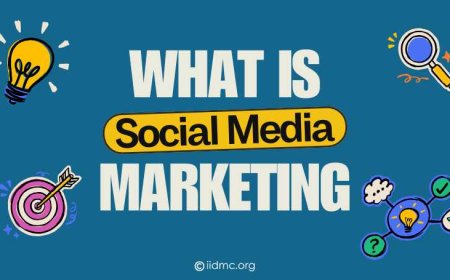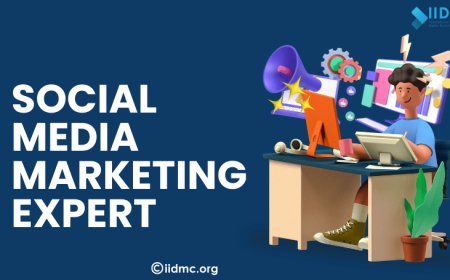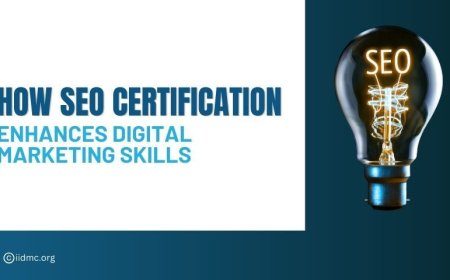Key Concepts of Digital Marketing Success
Learn the key concepts of digital marketing, including SEO, content, social media, and ads, to help you grow your online presence and achieve business success
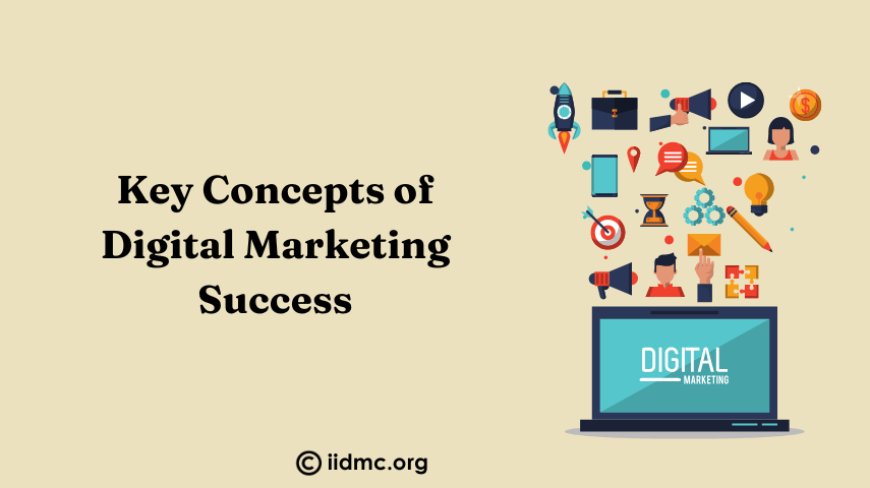
In my experience, understanding the concepts of digital marketing is essential for anyone looking to succeed in the online world. When I first started, it was easy to feel lost in the vast array of tools and strategies available. But over time, I realized that the core concepts—like SEO, content marketing, social media, and email marketing—are the building blocks for any successful digital strategy. Once you grasp these key concepts, you can attract the right audience, create engaging content, and optimize your efforts to drive meaningful results.
Know Your Audience Like a Friend
Understanding your audience is the cornerstone of successful digital marketing. Just as you build strong relationships with friends by knowing their preferences, challenges, and desires, the same principle applies to engaging your audience. Start by creating detailed buyer personas to map out their demographics, goals, and pain points. Leverage tools like analytics, social media insights, and customer feedback to uncover behavioral patterns and preferences. Actively engage in conversations, monitor trends, and use social listening to stay in tune with their needs. Experiment with content, using A/B testing to refine your approach and deliver messages that truly resonate. By knowing your audience like a friend, you create authentic connections that drive engagement, build trust, and foster loyalty.
How to do it:
-
Use tools like Google Analytics or Instagram Insights to see who’s visiting your site or following your page.
-
Run a quick poll or survey to ask your audience what they want.
-
Think about their age, interests, and even their online habits. Are they TikTok lovers or LinkedIn professionals?
Content: The Heart of Digital Marketing
Content is the driving force that connects brands with their audiences. High-quality, relevant content not only informs and engages but also builds trust and loyalty over time. It serves as the foundation for every digital strategy, from SEO and social media to email marketing and paid ads. Effective content provides value, addressing the needs, questions, and challenges of the target audience while aligning with the brand's voice and goals. Whether it’s a blog post, video, infographic, or social media update, content must be crafted with purpose, creativity, and a deep understanding of the audience. Simply put, great content is the bridge that turns casual visitors into loyal customers and advocates for your brand.
Types of content to try:
-
Fun and informative blogs (like this one!).
-
Quick videos or reels that entertain or teach something valuable.
-
Eye-catching images or infographics that explain a concept in seconds.
SEO: Your Website’s Best Friend
SEO is another fundamental concepts of digital marketing that every business needs to master. SEO helps your website rank higher in search engine results pages (SERPs), which directly impacts your visibility and organic traffic.
-
On-page SEO involves optimizing elements like keywords, title tags, and meta descriptions within your content.
-
Off-page SEO focuses on building high-quality backlinks and improving your brand’s reputation across the web.
-
Technical SEO ensures that your website is optimized for fast loading speeds, mobile friendliness, and easy navigation.
-
Local SEO is especially important for businesses with a physical presence, as it helps you appear in local search results.
Social Media: Your Digital Playground
Social media is where your audience already hangs out. Whether it’s Instagram, TikTok, Facebook, or LinkedIn, there’s a platform for everyone.
How to shine on social media:
-
Post consistently and engage with your followers—reply to their comments or DMs.
-
Share a mix of content: behind-the-scenes stories, tips, funny memes, or trending challenges.
-
Don’t be afraid to show some personality. People love authentic brands! Think of social media as a conversation, not just a sales pitch.
Email Marketing
Despite being one of the oldest forms of digital marketing, email marketing remains one of the most effective methods for nurturing relationships and driving conversions. The key to success here lies in personalization and segmentation.
-
Segmentation allows you to send targeted messages based on a subscriber’s behavior, preferences, or stage in the buying process.
-
Automation tools can help streamline campaigns by sending welcome emails, reminders, or promotional offers based on customer actions, saving you time while maximizing engagement.
With the right strategy, email marketing can turn a simple list of contacts into a powerful sales channel, making it a critical concepts of digital marketing.
Ads That Work (Without Breaking the Bank)
Digital ads, like those on Google or Facebook, can bring in a lot of attention—even if you’re on a budget. The best part? You only pay when someone clicks on your ad.
-
Try Google Ads to appear on search results.
-
Use Facebook or Instagram ads for visual, eye-catching campaigns.
-
Target specific groups (age, location, interests) to get the best results.
Think of ads as your way of saying, “Hey, I’ve got something awesome you’ll love!”
Measure What Matters
How do you know if your efforts are paying off? By tracking your results! Analytics tools can tell you what’s working and what needs tweaking.
What to look at:
-
How many people visited your website or clicked on your ad?
-
Which posts got the most likes, shares, or comments?
-
How many people signed up for your email list? Numbers don’t lie, and they help you make smarter decisions moving forward.
Don’t Forget Mobile Users
Most people browse, shop, and scroll on their phones. If your website or content doesn’t work well on a smartphone, you’re missing out!
Mobile-friendly tips:
-
Make sure your website looks great on smaller screens.
-
Keep navigation simple—no one likes to zoom in and out just to click a button.
-
Test how fast your site loads on a phone.
A smooth mobile experience keeps visitors happy (and coming back).
Build Trust and Stay Authentic
Would you trust a brand with bad reviews or no reviews at all? Probably not. Building trust online is all about being real and responsive.
How to build trust:
-
Ask happy customers to leave reviews.
-
Share testimonials or success stories.
-
Respond to complaints with kindness and a solution.
People trust brands that act like humans, not faceless corporations.
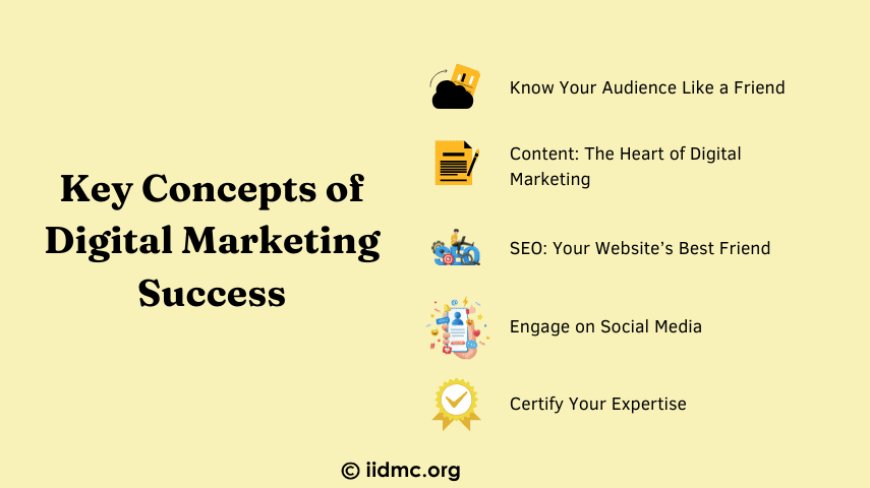
Keep an Eye on Trends
Digital marketing is always changing, and that’s what makes it exciting! Stay curious and try new things, like short videos, AI tools, or influencer partnerships.
How to stay updated:
-
Follow marketing blogs or YouTube channels for fresh ideas.
-
Experiment with new platforms or features (like Instagram’s latest tool).
-
Don’t be afraid to try, fail, and learn.
Start Small and Stay Consistent
Feeling overwhelmed? Don’t be. The key is to start small and grow step by step. Pick one or two strategies, practice, and improve as you go.
Beginner tips:
-
Focus on one social media platform before expanding to others.
-
Create a simple website or blog if you don’t have one yet.
-
Be patient—digital marketing is a journey, not a sprint.
Case Study: Coca-Cola’s “Share a Coke” Campaign
Coca-Cola's "Share a Coke" campaign is a standout example of effective digital marketing. The campaign replaced the iconic Coca-Cola logo on bottles with popular names, creating a sense of personalization and encouraging customers to find and share bottles with their names or friends’ names. Using platforms like Facebook, Instagram, and Twitter, the brand promoted the hashtag #ShareACoke, inspiring massive user-generated content as people shared photos and tagged friends. Coca-Cola further extended engagement with an online tool for customizing virtual bottles. The campaign resulted in over 500,000 social media shares, significant brand visibility, and a 2% sales increase, showcasing how personalization and social engagement can drive both brand loyalty and tangible results.
Digital marketing is a dynamic field requiring creativity, adaptability, and a strong understanding of the audience. Success lies in knowing your audience deeply, creating engaging and valuable content, leveraging SEO to improve visibility, and building trust through authenticity. To master these principles, the IIDMC framework provides a structured approach: identify your audience, implement effective strategies, develop engaging campaigns, measure performance with analytics, and certify your expertise through recognized programs. Certifications from the International Institute of Digital Marketing—such as the Licensed Digital Marketing MasterTM or Licensed Digital Marketing SpecialistTM—along with credentials like Google Ads, HubSpot, or Facebook Blueprint—equip you with the skills and credibility needed to thrive in the ever-evolving digital.



























